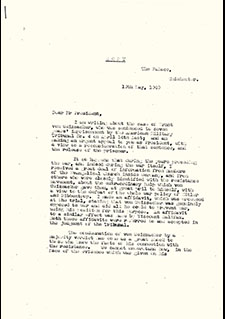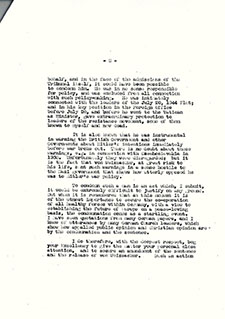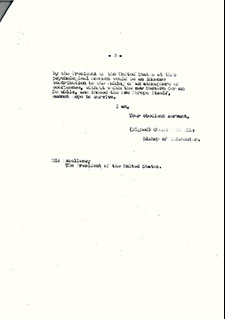Unterstützung für Ernst von Weizsäcker
Im Geiste der Versöhnung setzte sich George Bell beim amerikanischen Präsidenten für Ernst von Weizsäcker ein. Der Spitzendiplomat war von den alliierten Richtern im vorletzten Nürnberger Kriegsverbrecherprozess wegen „Verbrechen gegen die Menschlichkeit“ zu sieben Jahren Haft verurteilt worden.
Nach dem Urteil schrieb Bell am 19. Mai 1949 an den amerikanischen Präsidenten: The condemnation of von Weizsäcker by a majority verdict has come as a great shock to those who know the facts of his connection with the resistance. We cannot understand how, in the face of the evidence which was given on his behalf, and in the face of the admission of the Tribunal itself, it could have been possible to condemn him ... He was intimately connected with the leaders of the July 20, 1944 Plot; and in his key position in the Foreign Office before July 20, and before he went to the Vatican as Minister, gave extraordinary protection to leaders of the resistance movement, some of them known to myself and now dead.
Bell bat den Präsidenten, sich für Weizsäckers Entlassung einzusetzen und argumentierte: Such an action by the President of the United States at this psychological moment would be an immense contribution to the making of an atmosphere of confidence, without which the new Western German Republic, and indeed the new Europe itself, cannot hope to survive.
Von Weizsäcker kam bereits 1950 im Zuge einer allgemeinen Amnestie vorzeitig frei. Seine Rolle im „Dritten Reich“ ist bis heute umstritten.
Quelle / Titel
- © Archiv des Ökumenischen Rates der Kirchen Genf, 301.43.13/6



